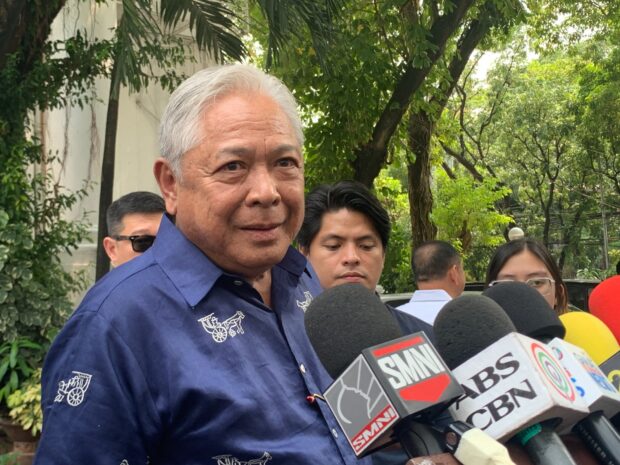DOTr reiterates willingness to meet transport groups on modernization plan

Transportation Secretary Jaime Bautista in this file photo taken on October 17, 2023. INQUIRER.net file photo / Tetch Torres-Tupas
MANILA, Philippines — The Department of Transportation (DOTr) on Monday reiterated its willingness to meet with transportation groups regarding the Public Utility Vehicle Modernization Program (PUVMP), adding that it is actively “fine-tuning” the contentious program.
Transportation Secretary Jaime Bautista made the pronouncement after the Pinagkaisang Samahan ng mga Tsuper at Operators Nationwide (Piston) conducted a three-day nationwide transport strike in protest of the December 31 deadline for the consolidation of traditional public utility jeepneys.
“I still believe we can resolve the issues through honest communication. We have been fine-tuning the program according to the voices of transport groups,” Bautista said in a statement.
“In the PUV Modernization Program, we ensure no one gets left behind,” he added.
According to Bautista, he had already reached out to Piston president Mody Floranda to correct several misconceptions about the PUVMP — including the perceived phase-out of traditional jeepneys, the high cost of modern jeepneys, as well as the forced purchase of units costing P2 million each.
Article continues after this advertisementREAD: Jeepney phaseout: It’s more than just new vehicles
Article continues after this advertisementIn fact, Bautista said many jeepney operators and drivers who have consolidated into cooperatives have already complied with the program.
READ: LTFRB again plays down transport strike
The secretary said over 5,000 routes with 135,761 consolidated franchises have already been approved and operated by 1,838 cooperatives and consolidated companies.
READ: Transport group Manibela joins transport strike
According to the DOTr, under the modernization program, transport cooperatives can avail of financial assistance, on top of a government subsidy to upgrade their PUV fleet with low-carbon emission, safe and efficient units.
However, transport groups have consistently opposed the PUVMP, especially the consolidation requirement as it could result in the monopoly of public transportation.